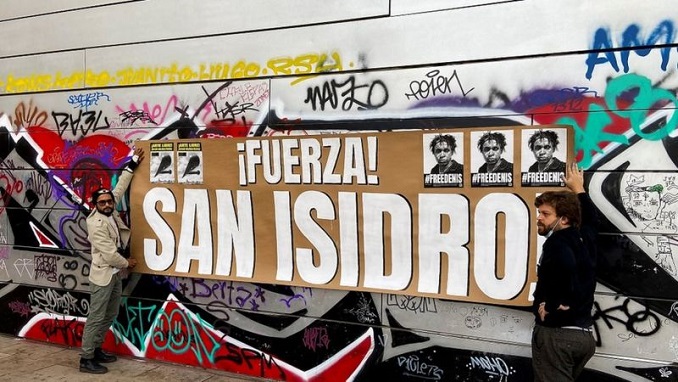A Cuban dissident group says police have raided its headquarters in Havana and detained at least six members who were on hunger strike, BBC reports. The San Isidro Movement said some people were beaten, and social media was temporarily shut down to stop images of the raid being shared online. Cuban authorities said the action was taken over a health violation related to coronavirus.
The San Isidro Movement has gained international attention recently. Founded in 2018, many of its members are artists, musicians, journalists and academics who oppose what they call oppressive measures by Cuba’s communist government.
The group told BBC Mundo that its HQ – an apartment in the country’s capital – was raided on Thursday night, but several members were later released from police custody.
The hunger strike was called to demand the release of Denis Solis – a dissident rapper who was sentenced to eight months in jail for contempt after a verbal altercation with a police officer. In a statement, Cuban authorities said they carried out the San Isidro raid because a journalist, Carlos Manuel Álvarez, had broken security protocols related to the spread of coronavirus, and was taking part in protests at the building.
“This action took place in full compliance with the law and without violating the citizen rights of any of those involved,” the statement read.
The San Isidro group called it an “absurd” pretext. The movement has often stirred controversy by mixing art with political activism. As a symbol of civil disobedience, one its members, Maykel Castillo, sewed up his mouth after being summoned by police for questioning.
Human rights NGOs and the US state department have called for Denis Solis to be released, and for the government to engage in dialogue with the San Isidro Movement.
The Cuban government alleges that he and the movement are funded by Washington and are being used to subvert the state. The San Isidro Movement has denied these allegations. These protests, although unrelated, come amid severe economic strain in Cuba over the global coronavirus pandemic.
While a Joe Biden administration may ease some of President Trump’s policies towards Cuba, it is likely to maintain the criticism of the communist-run government over human rights and its repression of dissent, reports Will Grant, the BBC’s Mexico and Central America correspondent.
